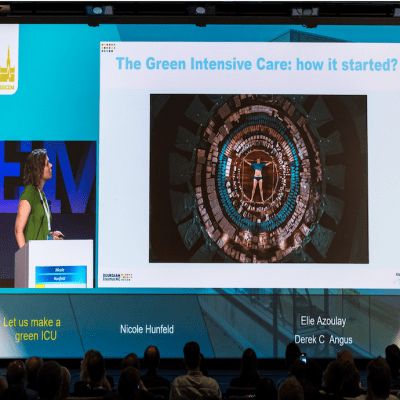The procedure specific postoperative pain management (PROSPECT) initiative provides evidence-based procedure-specific guidelines for postoperative pain management. This is really important, because the problem is that guidelines
on postoperative pain management are broad and are not procedure-specific. Every
type of surgery requires its own type of optimal pain management.
This is why we started PROSPECT 15 years ago on a procedure-specific basis on a public website to provide the evidence from randomised controlled trials (RCTs) on different analgesic techniques in this or that operation.
We have just now received more funding and it’s functioning well. We provide updates on new procedures. It’s a very important instrument, and it’s the only one in the world you can click in for free and get information from RCTs on what to do.
What are your key areas of interest and research?
I go back to the essential questions: Why is the patient in hospital? Why is it still a little dangerous to have major surgery? It appears that pain is a key problem, so we do a lot of research in pain management.
My other key area of interest is inflammatory response to injury. How can you modulate these potentially undesirable responses? Some patients have a huge stress reaction with inflammatory responses, and this is our key research topic—modifying these responses with preoperative high-dose glucocorticoids. All our RCTs have shown that this is really beneficial for pain, fatigue and early recovery and without side effects. This is one step further to increase the possibility for even shorter length of stay, not because length of stay is of major interest but because you enhance recovery and the need for hopsitalisation goes down. I am not interested in length of stay anymore. The key research is what happens after discharge, do patients really recover? I do a lot of research to measure activity, sleep, later post-discharge pain patterns etc. The first 30 days are really important, when functional activity goes down, and it may have implications for the next several months to a year. So we want to improve the early recovery phase even more, going beyond length of stay.
What are the major challenges in your field?
There are two aspects. Implementation of evidence is still a major challenge, And personally it’s to improve further the research, modifying undesirable stress responses, optimising pain management especially in some types of high-pain operations and high-risk patients, and focus on what happens after discharge.
What is your top management tip?
You have to know your own data, you have to know the data from the world literature and you have to collaborate.
What would you single out as a career highlight?
Probably the publication in the Lancet, in 1995 about 8 patients. That was the big eye opener for people. It was not high science, because it was only a few patients, but we showed that length of stay after colonic cancer surgery in patients more than 80 years old could be reduced from about 12-14 days as usual to about 2-3 days. It was a giant change. It was too big a change, therefore people didn’t believe it, but it turned out to be true.
If you had not chosen this career path you would have become a…?
Maybe a politician or an anaesthesiologist, as I’ve done so much anaesthesiology research.
What are your personal interests outside of work?
I play tennis several times a week. My wife and I walk in the mountains, and go to the opera a lot. We enjoy life.
Your favourite quote?
“If you don’t have data, you cannot manage it.” This is important in fast-track surgery, because if you go out and ask if people are doing fast-track or enhanced recovery, they always answer “Yes”. Then if you say, “Can I see your data?”, then it’s most often quiet. The question is do you have your own data? And do you have data to compare what other people have done? If you don’t have your data, you cannot manage. It’s very simple. That especially applies to enhanced recovery after surgery or fast-track surgery.
Biography
Prof. Henrik Kehlet is now Professor of Perioperative Therapy at Rigshospitalet, University of Copenhagen, Denmark, but before Professor of Surgery and Chief Surgeon at another Copenhagen University Hospital. Prof. Kehlet’s research interests have focused on surgical pathophysiology, acute pain physiology and treatment, the transition from acute to chronic pain, postoperative fatigue and organ dysfunction. These efforts have condensed to form the concept of ‘fast-track surgery’ with the aim of achieving the ‘pain and risk-free operation’.
Prof. Kehlet has published about 1000 scientific articles and given more than 300 invited lectures at international scientific meetings and university departments. He is an Honorary Fellow of the Royal College of Anaesthetists, UK, the American College of Surgeons, the American Surgical Association, the German Surgical Society and the German Anaesthesiological Society.
His many awards include the Novo-Nordic Award in 1996, the European Society of Regional Anaesthesia Distinguished Award in 2010, the Global Excellence Award (Capital Region, Denmark) in 2012, and the Excellence in Research Award from the American Society of Anesthesiologists in 2014.























